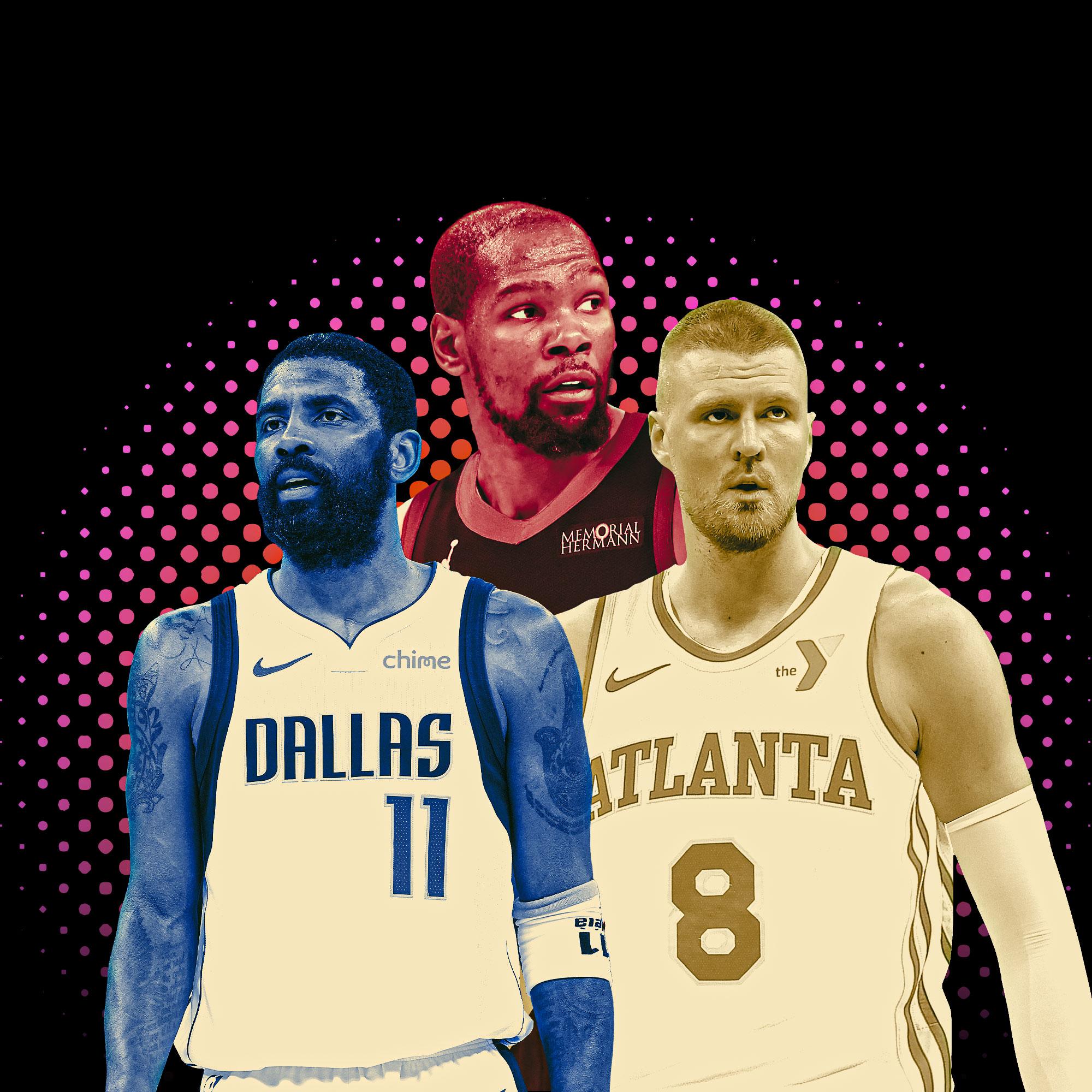
Before the Milwaukee Bucks shocked the league by signing Myles Turner to a four-year, $107 million contract—effectively replacing Brook Lopez as the pick-and-pop rim protector who made perfect sense next to Giannis Antetokounmpo for so many years—they were an increasingly desperate organization that had no starting point guard or center.
Now, by robbing Peter to pay Paul, they’ve “solved” at least one of those problems: In order to clear enough cap space for Turner’s new deal, Milwaukee decided to waive and stretch Damian Lillard’s contract, effectively paying him $22.5 million per year over the next five seasons instead of $113 million over the next two. Um, OK! This might make sense if they had any chance to win or even contend for a championship.
But don’t confuse surprising with clever. The Bucks are still a deeply flawed team surrounding an all-time great player. They still don’t have a point guard. And while Turner is above average at his position, he’s also someone who didn’t close a bunch of important games for the Indiana Pacers during their magical run to the NBA Finals.
Speaking of, we’ll get to Indy’s side of this in a moment, but for now it’s just so hard to not admire Milwaukee’s commitment to futility: The Bucks have won just one playoff series since winning the title in 2021 and keep making moves to placate Giannis that actually set them further back. All they need now is a proper scolding from Chief Wiggum: Dig up, stupid!
While ESPN’s Shams Charania reported Antetokounmpo was on board with the addition of Turner, a report by Chris Haynes indicated that Antetokounmpo “is not pleased” with the decision to waive Lillard. He’s smart enough to understand how badly this move will cripple Milwaukee’s long-term flexibility and general ability to retool around him. Maybe he put pressure on the Bucks behind the scenes and wasn’t willing to live through a down year or two, but functionally running last season’s roster back without Lillard and with a more expensive carbon copy of Lopez is not the stroke of genius they think it is.
Turner is a solid big man with an attractive skill set. He is not someone who can reliably create looks for himself, though. Over the past two seasons, he made 39.6 percent of his 3s with Tyrese Haliburton on the court and 29.9 percent (that’s not good) without him. Who’s he going to run pick-and-rolls with now? Kevin Porter Jr.? Gary Trent Jr.? Kyle Kuzma?
The fit alone does not justify the cost of this contract, let alone the drastic measure it took to make it happen. Lillard’s dead money will outlast Antetokounmpo’s prime and, in all likelihood, Turner’s entire tenure in Milwaukee. It’s someone shattering the “break in case of emergency” glass to grab a fire hose after the building has already been incinerated.
Before things went off the rails, those who are into cap minutiae could’ve spun Milwaukee’s opening couple of days of the offseason into something positive. Facing real limitations on the ability to re-sign several of their own free agents, the Bucks brought back Bobby Portis, Taurean Prince, Trent, and Porter on modest deals that all included a player option on the final year. But that shrewd front-office work won’t move the needle for a team that could still end up in the play-in—much of what’s taken place is more sizzle than steak.
Sure, these deals can be cobbled together in a potential midseason trade, but the players were originally acquired because their skill sets made more sense around Antetokounmpo and Lillard. Before they waived the future Hall of Fame point guard and signed Turner, Milwaukee had access to its non-taxpayer midlevel exception. There’s a world in which it could have used that salary slot on Al Horford or Deandre Ayton without tacking all that long-term weight onto its books. Alas, that did not happen.
A quick detour to address Indiana’s side of this. Now, I know the Pacers are getting killed for letting Turner walk because they didn’t want to pay the tax; I somewhat agree with the criticism, particularly after the team made a surprise Finals run. But I also think it’s mostly coming from a place of principle rather than practicality. Turner is fine. He was a big part of Indy’s success, stood up on defense when it mattered, and enjoyed stretches when he shot the crap out of the ball. He’ll also turn 30 in March and in the first year of that new hypothetical contract would not have Haliburton by his side, or be competing on a team that should even want to win more games than it loses. It sucks to write all of that out, but it’s the circumstance Haliburton’s ruptured Achilles put them in.
Turner’s effective field goal percentage against the Thunder was a grotesque 42.6, and he struggled to corral OKC’s ball handlers (namely Shai Gilgeous-Alexander, which, no shame!) on the perimeter. Against the New York Knicks in the conference finals, he was obliterated by Karl-Anthony Towns when instructed to guard him one-on-one. The Pacers were a better team with Turner on their roster, but losing him is not the end of the world.
OK, back to Milwaukee. A few final questions: What the hell will it do when Giannis is on the bench? How many teams in the Eastern Conference can credibly say they’re better? Cleveland, New York, Orlando, Atlanta, and Detroit should all be on that list. If you’re feeling generous, Philadelphia probably belongs somewhere on that list, too.
The dust hasn’t settled elsewhere, but all of this is to say the risk vs. reward proposition in Milwaukee thinking Myles Turner could be its savior is woefully off base. Bucks fans will be upset reading this, but there still may come a day when Giannis requests a trade. And if/when that happens, $22.5 million worth of cap space will be a valuable commodity they can’t get back. To make that signing possible with one of the more ill-advised waive-and-stretch decisions in NBA history is icing on the cake.




